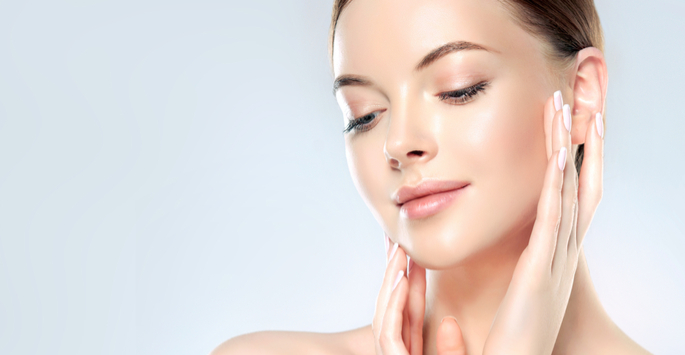Chemical peels can make a huge difference in the appearance of your skin by improving lines and wrinkles, smoothing texture, lifting pigment, brightening, and increasing skin firmness. These medical-grade solutions have been used safely for years and are growing in popularity among those who wish to avoid surgical procedures that can lead to lengthy downtimes, complications, and results that are too drastic for some.
Although there are different types of chemical peels, they all work somewhat similarly: they use some type of chemical solution to peel away some of the outer skin layer to foster the development of new skin tissue displaying fewer problems like the effects of aging or sun damage. Peels are classified into three basic types: light, medium, and deep. They are defined by their ingredients, strength of concentration, and depth of penetration.
Light Peels
Mild acids like alpha hydroxy, glycolic, and lactic acids are commonly used in light peels for treating superficial skin problems such as dull complexion, wrinkles, and superficial acne scars. Multiple applications may be necessary due to their mild nature.
Medium Peels
Medium peels are somewhat stronger and more suitable for skin problems like light to moderate wrinkles, enlarged pores, and hyperpigmentation. TCA is one of the most popular choices for chemicals in a medium peel.
Deep Peels
Deep peels are the most aggressive form of chemical peel and are normally only used for deep wrinkles, stretch marks, hyperpigmentation, and deep scars caused by acne, surgery, or injury. Phenol and carbolic acid are two of the most common types of chemicals used in deep peels.
Preparing for Your Peel
When it comes to chemical peels, some preparation can help you obtain the best results possible. For one, you may want to exfoliate before your treatment. This allows your skin to ease into a professional strength chemical peel by conditioning it to a more dramatic form of treatment. You should also remain hydrated both before and after your treatment. Skin that is dry is more vulnerable to unnecessary damage. Drink plenty of fluids and use a good, non-irritating moisturizer on your skin.
Chemical Peels Consultation
Before undergoing a treatment with chemical peels, we will take your medical history and be informed of any medications that you are taking that could possibly interfere with your treatment or recovery. This is the time to ask any remaining questions that you may have so that you are fully informed as to every step of the treatment process. For more information, we warmly invite you to reach out and make an appointment with SKC Dermatology! At our convenient location in Paramus, our caring and experienced team of professionals will be pleased to explain this option in greater detail and answer any questions you may have. Contact us today to set up your consultation – we look forward to speaking with you!


